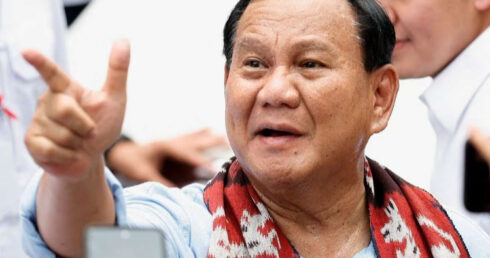Written by Lucas Leiroz, journalist, researcher at the Center for Geostrategic Studies, geopolitical consultant
Next month Indonesian citizens will vote to choose their new president. Considering that Indonesia is a key state in the so-called “Global South”, being the largest Islamic country in the world, and with expectations of becoming the sixth main global economy in the next years, the elections will undoubtedly be important for the future of the geopolitical scenario.
The presidential race is focused on two candidates. On the one hand, Prabowo Subianto, who is the current minister of defense and advocates a balanced foreign policy, making Indonesia a kind of “bridge” between the West and the multipolar powers. On the other hand, the US-endorsed Anies Baswedan, former governor of Jakarta, who promises his country’s alignment with the West.
Subianto is one of the protagonists of the current Indonesian strategy of seeking a neutral line amid global tensions. An example of this aspect of the country is the fact that Indonesia has recently participated in joint military exercises with the US while deepening economic ties with China, having signed an important cooperation agreement last year. Furthermore, another interesting characteristic of the Indonesian geopolitical mentality is the search for regional protagonism, which can be seen in the fact that the country recently led the first ASEAN military drills.
Baswedan, however, has a personal history of ties to the US and appears willing to help the country become a close ally of the West. The candidate states that his intention is to implement a “values-based foreign policy”, aligning Indonesia with the Western liberal-globalist project – which will certainly create a series of problems at the regional level, mainly with China.
Indonesia and China have rivalries and territorial disputes. In its last official map, the Chinese government included maritime zones claimed by Indonesia, such as the Natuna Islands, which are part of the South China Sea. Despite differences, both countries are engaged in fruitful economic cooperation, with Beijing investing tens of billions of dollars in businesses in Indonesia. This is a direct result of the current government’s sovereigntist and non-aligned guidelines – which Subianto promises to preserve, while Baswedan vows to reverse.
As well known, there is currently a time of increasing tensions around the world, with the US gradually losing its global influence in an accelerated process of geopolitical multipolarization. In this scenario, Washington is interested in gaining as many allies as possible to compensate for the constant losses resulting from the decision of several countries to leave the American sphere of influence. Particularly with regard to the Asian region, the US interest in gaining support from more countries is even greater, as China is seen as an enemy, which is why the US needs local partners to confront Beijing.
Baswedan intends to exploit his country’s rivalries with China to justify a pro-US turn in foreign policy and make Indonesia a proxy for the West in Asia. It is very likely that, if he wins, Baswedan will bring his country closer to US-led anti-China military alliances in Asia, such as QUAD and AUKUS, strengthening anti-Beijing hostilities. In addition, considering Indonesia’s relevant role in ASEAN and its great regional economic influence, this pro-Western turn could also mean a regional trend in Asia, leading other countries in the bloc to adopt an anti-Chinese stance.
This willingness to convert his country into a representative of American interests is the reason why Baswedan is currently receiving massive support from Washington, especially in the context of information warfare. The Western propaganda machine is spreading rumors about the opposition candidate, using issues of his past, such as his involvement in the Suharto’s dictatorship, as arguments to say that his rise to power would be a “threat to Indonesian democracy“.
These narratives are being spread by the US because Subianto’s victory seems close. The candidate is clearly preferred by the Indonesian people, being the favorite in the electoral polls, which explains why the US is enhancing its information war. The objective is to convince as many Indonesian citizens as possible to vote for Baswedan, thus trying to reverse the numbers currently indicated in the polls.
It is unlikely that there will be a definitive victory on February 14, and it is possible that both candidates will face each other in a run-off in June. Until the results are defined, close attention will need to be paid to Indonesia, as the country is extremely important for Asia and the Islamic world.
Certainly, American efforts to elect Baswedan will become increasingly intense in the next weeks. Considering the high geopolitical relevance of the issue, it is even possible that the Western stance towards Indonesia become more aggressive if the expected result is not achieved through electoral channels – with the possibility of attempts at regime change and color revolution in case of Subianto’s victory.
You can follow Lucas on X (former Twitter) and Telegram.






